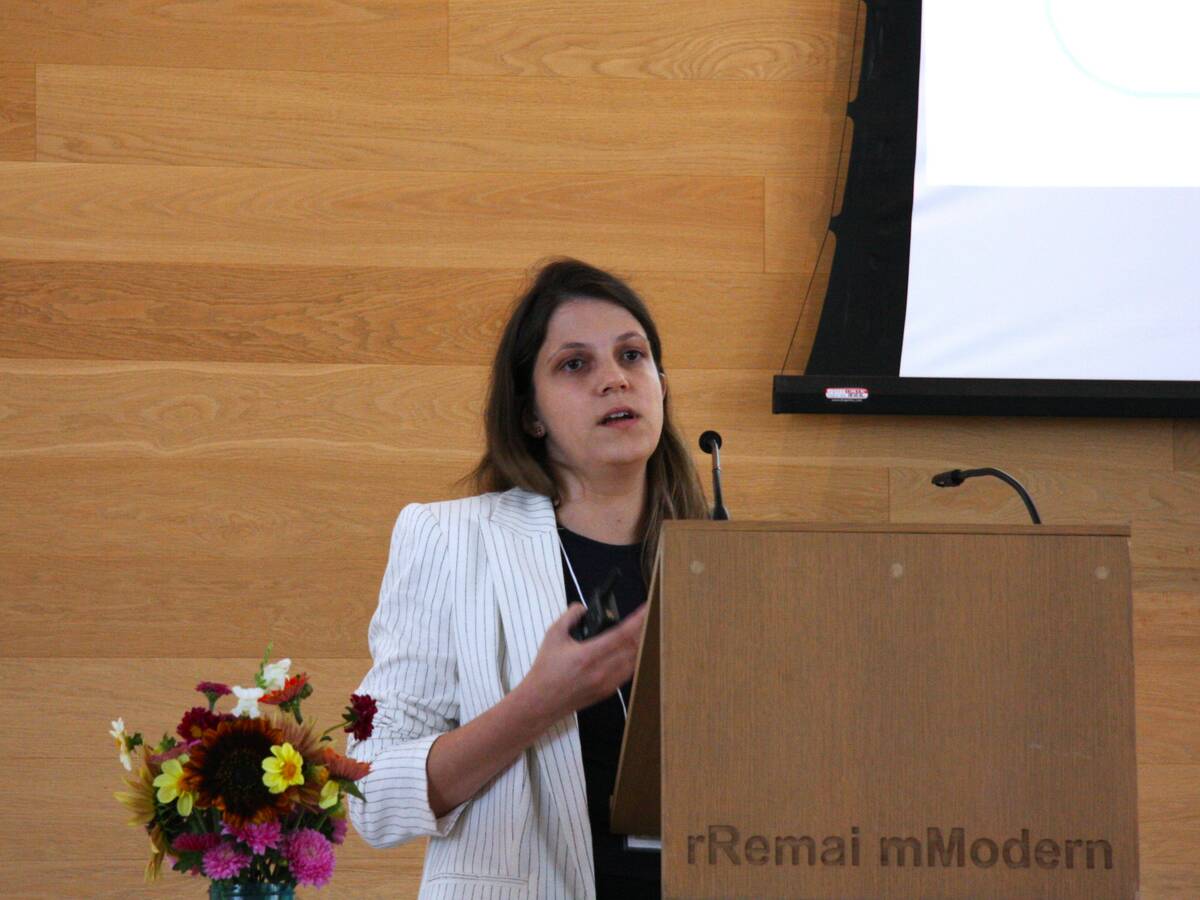The new year started off with a chorus of peeps on Triple S Farms at Altamont, Man.
On Jan. 6, the farm, owned by brothers George, Michel and Odiel Sanders, got its first shipment of day-old chicks, destined to become the first flock of unique laying hens.
It is these hens, and the eggs they will produce, that have been behind more than a year of raucous negotiation in provincial and federal egg supply management agencies.
By November, Triple S Farms expects to have 500,000 hens laying eggs that will go directly to a Winnipeg processor, Canadian Inovatech, an exporter of dried and liquid egg products.
Read Also

Fusarium head blight mycotoxin detector in the works
A PhD student at the University of Saskatchewan has been working on developing a method of detecting fusarium damaged kernels to ease the struggles of producers, agronomists and industry.
The farm is exempt from Canadian Egg Marketing Agency regulations that require egg producers to have quota for their hens.
The quota is used so the agency can match the supply and production of eggs to meet the needs of the domestic market.
This farm’s eggs will not be sold in Canada. Yet, a Canadian processor needs them. Inovatech has long imported eggs from the United States because there are not enough produced in Canada to fill its requirements.
It wasn’t easy to get an exemption from the rules, said George Sanders. But with help from the farm’s lawyer, the brothers persisted.
“It was always negative,” said Sanders, reflecting on reaction from Manitoba’s egg marketing agency.
“We just bullheadedly said, ‘We’re building it.’ “
The brothers first had their eyes opened to export opportunities for eggs in 1976, when they briefly ran an egg breaking plant in Winnipeg.
They sold the plant because it was hard to get a predictable supply of eggs from the marketing board, which focused on domestic needs, and sold surplus eggs to processors, explained Sanders.
Twenty years later, they decided to work on that supply.
“We had to do something with our grain,” said Sanders, explaining the on-farm feed bill for the barns will take 23,000 acres worth of feed, some from the brothers’ 6,500 acre farm, and the rest from neighbors.
Sanders said they were also concerned export markets would be lost to Canadian eggs unless Canadian producers stepped forward to fill processors’ needs.
So in April 1998, they started building a pullet barn and three layer barns that will hold 500,000 hens.
Sanders was reluctant to compare the size of the barn with others in Canada.
But to date, a barn at Dufrost, Man., holding 150,000 hens is thought to have been the largest operation in the country.
In April 1997, when they told the Manitoba government about their plans to find another use for their grain through laying hens, the brothers got a warm reception.
Manitoba Egg Producers were less receptive, fearing the project would affect the egg market of other producers, explained chair Harold Froese.
But by Nov. 25, the provincial and national agencies accepted the venture and granted the exception to their regulations.
Provincial help
Sanders credits Manitoba agriculture minister Harry Enns for calming the waters.
Enns threatened to pull the province out of the national supply management agreement if the brothers didn’t get approval.
After years of negotiation, Manitoba has a program that allows farmers to keep as many hens outside the quota system as they have within the quota system.
The eggs from the extra hens also go to Inovatech.
Sanders explained the brothers didn’t want to wait, nor work through programs or co-operative ventures with other producers.
Froese noted while Triple S Farms is an exception to the quota system, it still works within the national system.
The operation must follow national codes of practice and put up personal and financial guarantees that its eggs will stay outside the domestic market.
The Triple S operation is rumored to cost in the range of $8 million.
Sanders wouldn’t comment on the details of the farm’s contract with Inovatech, nor his expected costs of production.
Processors base their contracts on the world price of eggs, which has often been as low as half of the Canadian price.
Sanders insists he’s not out to raise questions about nor wreck the supply management system for eggs.














